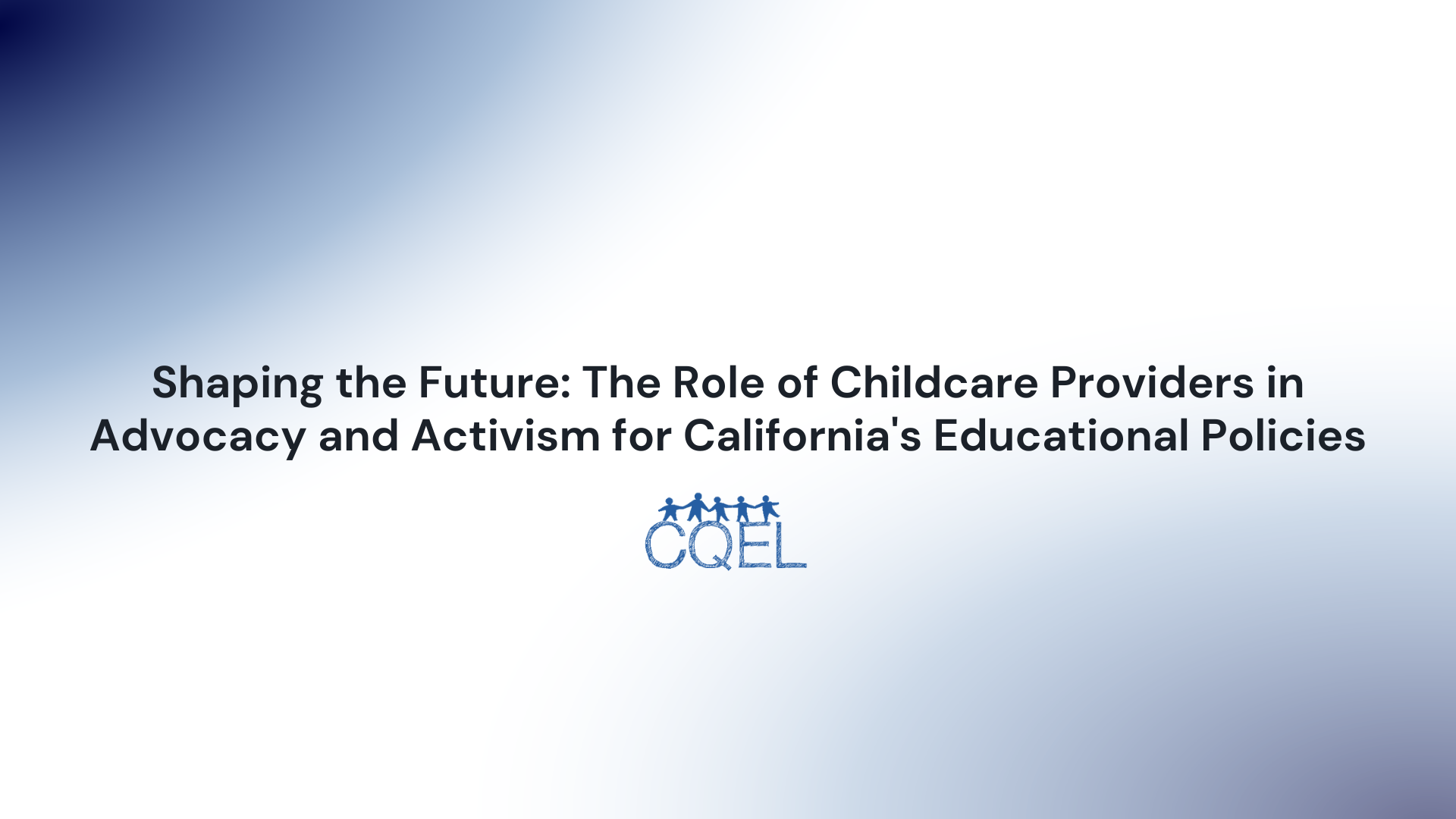Shaping the Future: The Role of Childcare Providers in Advocacy and Activism for California's Educational Policies
By participating in policy discussions, childcare providers can influence the formation of policies, helping to create a more supportive and effective framework for quality early learning and care in California.

In the sphere of early education and care, childcare providers serve as essential frontline workers. They offer crucial educational and nurturing services and have firsthand insights into the effects of educational policies on children, families, and their work environment. These insights, however, may be overlooked unless providers take an active role as advocates and activists. By participating in policy discussions, childcare providers can influence the formation of policies, helping to create a more supportive and effective framework for quality early learning and care in California.
Advocacy and Activism Defined
While the terms advocacy and activism are often used interchangeably, they have distinct roles. Advocacy involves voicing out for the rights and needs of others—in this case, children and families requiring quality childcare. Activism is a notch higher, involving actions such as campaigning to instigate political or social change. Both roles require a solid grasp of the subject matter, a willingness to effect change, and strong communication skills.
Policy Engagement for Childcare Providers
Childcare providers can engage in the policymaking process in numerous ways, including attending public forums, contributing to consultations, and establishing relationships with local representatives. Providers can use these platforms to share their experiences, identify gaps in existing policies, and suggest improvements. This could cover various aspects, from reimbursement rates to quality standards and workforce development.
The Role of CQEL
Californians for Quality Early Learning (CQEL) plays a pivotal role in supporting providers in their advocacy efforts. As an organization representing California's early care and education community, CQEL advocates for policies promoting quality care, equitable reimbursement rates, and a well-trained, respected workforce. By joining CQEL, childcare providers can amplify their voices and bring about impactful changes at a larger scale.
The Potential of Advocacy: Examples and Resources
The successful outcomes of childcare providers' advocacy efforts are evident in numerous instances. A significant example is the California Child Care Provider Act, resulting from providers' persistent advocacy for better wages. This legislation enables providers to bargain collectively for improved working conditions.
Several resources are available to assist providers interested in advocacy and activism. The Child Care Law Center provides valuable information about laws and policies impacting early care and education in California. Furthermore, organizations such as the National Association for Family Child Care and the National Association for the Education of Young Children offer resources for advocacy on a national scale.
Ultimately, the role of childcare providers extends beyond the childcare centers. Their participation in advocacy and activism can shape a more equitable and quality-focused early care and education landscape in California. Their unique insights are invaluable in devising policies that genuinely cater to children and families' needs.
